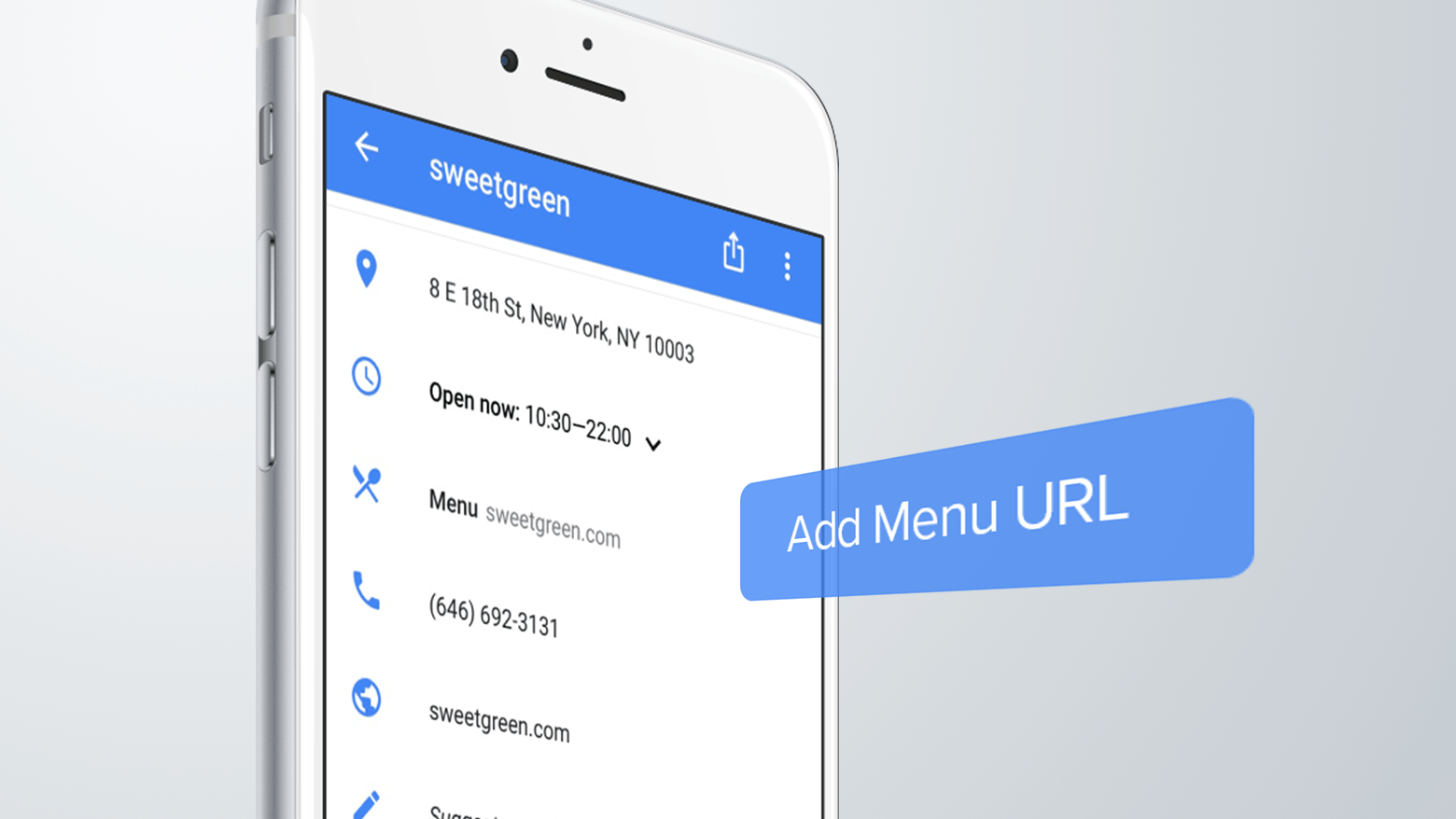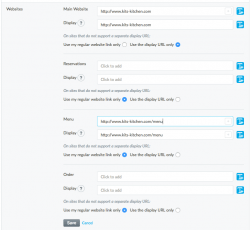Industry Insights
Google’s Latest Update Helps Restaurants Get More Out Of Location Search
For the first time, businesses can now ensure that consumers see the proper links to their menus in Google Search and on Google Maps. 2016 has been busy for Google! Since releasing the API for Google My Business last year, the search engine has been putting out a steady stream of updates. The last major […]

Yext
Dec 15, 2016

For the first time, businesses can now ensure that consumers see the proper links to their menus in Google Search and on Google Maps.
2016 has been busy for Google! Since releasing the API for Google My Business last year, the search engine has been putting out a steady stream of updates. The last major update to the API came this fall, but last week, Google quietly added some new functionality that will make life easier for restaurants using the API.
Google has added menu URL to the attributes available through the Google My Business API. So if you're using the Google My Business API to control your listings (instead of logging into the Google My Business dashboard directly) you can now specify the exact menu URL to which Google should direct your customers.
Until now, this inability to specify menu URLs caused headaches for many businesses who were managing their own Google Maps listings, but still saw a link to a third-party site when it came to their menu.
This new functionality is enabled via the Google My Business API for restaurants, and will likely be enabled for service-based businesses as well — so businesses like spas, salons, and auto repair shops will soon be able to showcase the services they offer via this update.
Menus could be the key to unlocking high-intent searchers
If you've ever felt hungry but unsure of where to eat, you know how influential location search can be in a customer's journey to find food — and in a restaurant's effort to win business away from the competition.
People search online for food service businesses considerably more than they do for any other business category. In fact, nearly 90% of the consumers we surveyed last year reported that they'd searched online for a local restaurant. It's also the most competitive category, with 56% reporting that they considered 3-4 options when deciding where to dine, whereas only 7% considered only one option. There's a huge opportunity for restaurants, cafes, and coffee shops of all sizes to help people, not only to find their locations nearby, but to compel those people to choose them over the competition.
Search engines recognize this opportunity. This latest update from Google makes it easier than ever for food services brands to differentiate themselves from their competition in location search.
Update your menu URL on Google with Yext
To ensure consumers see the correct menu URL on your Google Maps listings, first sync your Google My Business account with Yext. Since Google often makes new functionality like this available via API before it appears in the standard Google My Business dashboard, syncing your account with Yext ensures you can always leverage Google's latest updates to stand out from your competition.
If you're already powering your Google My Business account through Yext, navigate to the Location Edit screen in the Yext dashboard. Click into the Websites field and click "Add more websites".

Add your menu URL in the Menu field that appears. Doing so will automatically sync your menu URL to Google if your location is eligible for menus.

Be sure to link to your complete menu. Google specifies that this URL should not be used to display seasonal specials or a partial menu. This is a good thing — it'll make your life easier in the long run, since you won't have to update the URL every time you launch new specials.
How menus fit into your full location search strategy
Once your menu has piqued customers' interest, make sure you're also helping them find you in person. As Google and other location services continue to expand the type of data they show — from standard name, address, and phone number information to more specific and nuanced content like menus, what types of credit cards you accept, and whether reservations are available — it will only become more important to proactively manage the knowledge about your business that's displayed to consumers.
If your menu or other data is scattered across your organization, take the time to centralize and clean it now so you can continue to leverage it as functionality like this announcement continues to roll out.
To learn more about how Yext can help you drive more business from location search, visit yext.com/industries/food-services or contact your Yext account manager today.